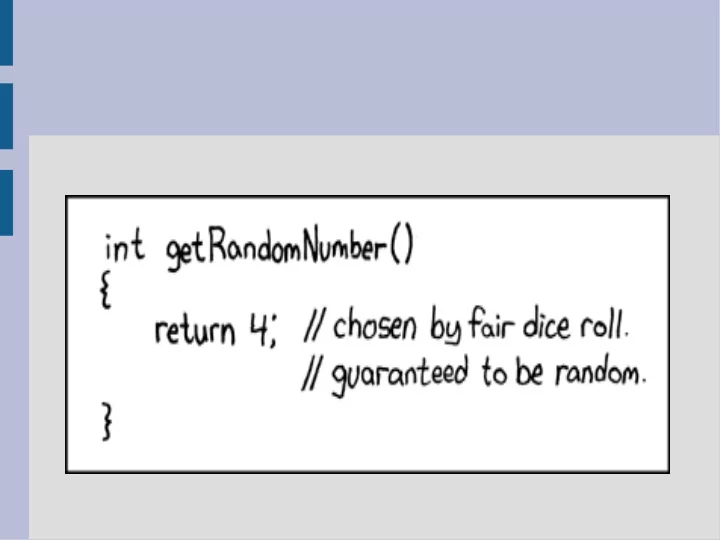

Functions How to make the person run? (See: runForest.cpp)
Functions You can also use functions that return bool types in an if statement or loop This is commonly used if you have complex logic as it is normally easier to write a function that have a very complex bool expression (See: findPrime.cpp)
scope (See: sillySwap.cpp) Typically the value of variables is copied and not given access to the real value This is similar to moodle, the score you see for grades cannot change the score I give you!
scope Blocks (inside { }) of code can only see variables from their parent blocks You can also make global variables outside of all blocks (almost as if your whole program has a start and end brace around it) (See: globalVariable.cpp)
scope You can give away your memory location by using “call by reference” with functions This will share the variable between the two functions, namely the function that is using the references (&) can modify the value (See: callByReferenceSwap.cpp)
scope We will talk more about the difference between a variable's memory location and value later For now, a memory location (or reference) will give a function full access to modify the value
References When memory does not actually hold the value of an object, but instead holds information about the actual location... (See: changeInt.java) ... this is called a reference
References If you use a normal function (call by value) then you will essentially make a photo copy of the variables (makes 2 variables, does not effect other) If you use call-by-reference, you have only one variable, but share it between you two This is similar to a website link, if two people follow the link they end up in the same page
Debugging -Test small pieces of code at a time -Add cout statements to see values in loops (and to localize error in general) -Test code on inputs you know the answer
Recommend
More recommend